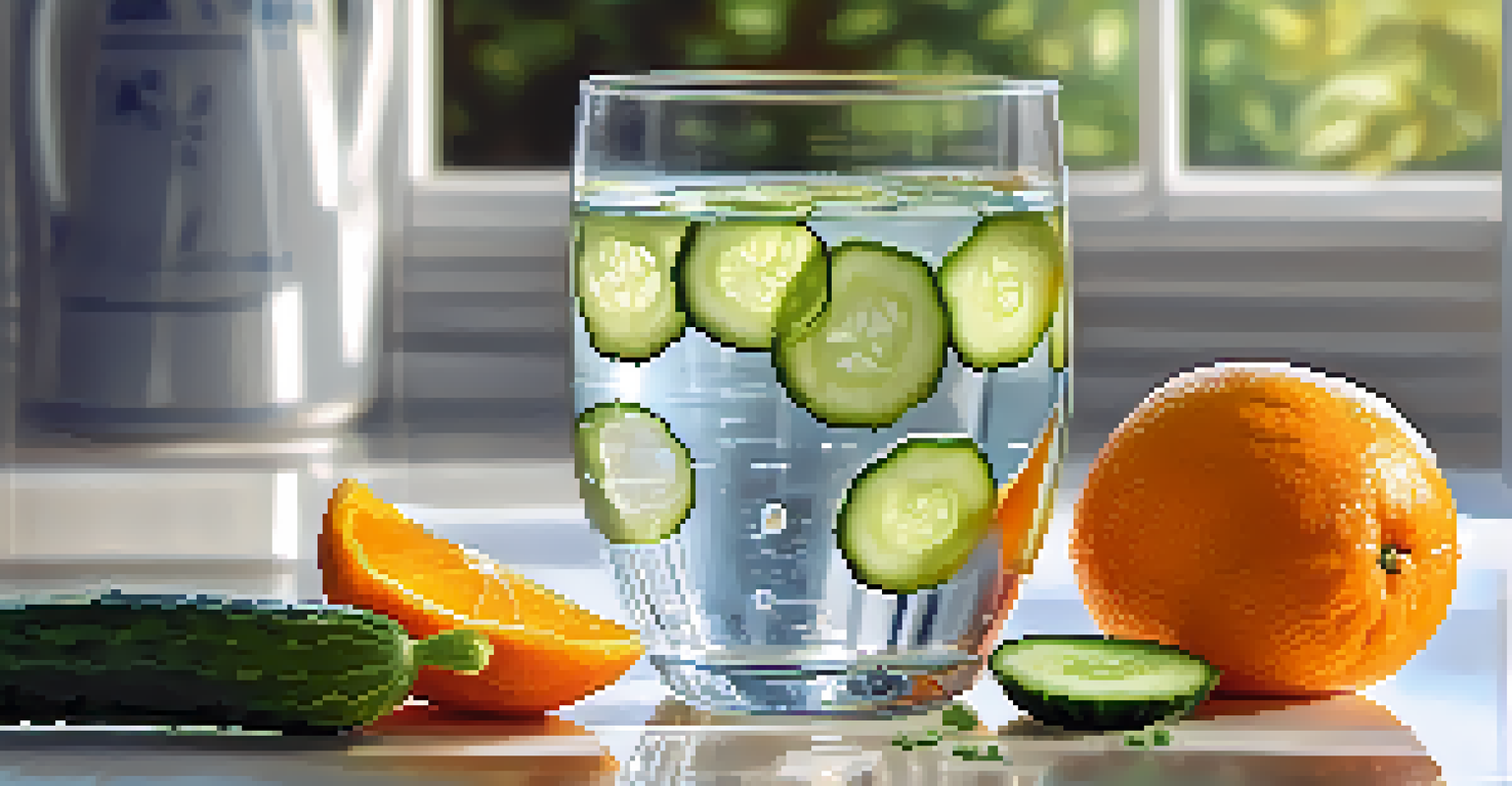Vitamins and Minerals: Essential Nutrients for Recovery

Understanding the Role of Vitamins in Recovery
Vitamins are organic compounds that our bodies need in small amounts to function properly. They play a crucial role in various bodily processes, including healing and recovery. For instance, vitamin C is essential for collagen production, which is vital for repairing tissues after injury.
Let food be thy medicine and medicine be thy food.
Each vitamin serves a unique purpose, making it important to consume a balanced diet rich in fruits, vegetables, and whole grains. Deficiencies can hinder recovery, leaving the body struggling to heal. By ensuring adequate vitamin intake, you support your immune system and promote quicker recovery times.
Moreover, vitamins like the B-complex group are known to aid in energy production, helping you bounce back after physical exertion. Incorporating a variety of vitamin-rich foods into your meals can make a significant difference in your overall recovery journey.
The Impact of Minerals on Physical Recovery
Minerals are inorganic substances that also play a vital role in recovery, ensuring the body operates smoothly. Key minerals such as magnesium, calcium, and potassium contribute to muscle function and repair. For example, magnesium helps relax muscles and prevents cramps, which is essential after a workout.

Just like vitamins, minerals must be consumed through a balanced diet. Foods like leafy greens, nuts, and dairy products are excellent sources of these essential nutrients. A deficiency in any mineral can lead to fatigue, weakness, and a slower recovery process.
Vitamins Boost Recovery Processes
Vitamins play a crucial role in healing and recovery, with specific vitamins like C and B-complex aiding tissue repair and energy production.
Incorporating mineral-rich foods into your diet not only supports recovery but also enhances overall health. It's all about finding the right balance to ensure your body has what it needs to recover efficiently.
Antioxidants: Vitamins and Minerals That Aid Recovery
Antioxidants are compounds that help combat oxidative stress in the body, which can occur during strenuous activities. Vitamins such as E and C, along with minerals like selenium, are powerful antioxidants that protect cells from damage. This protection is crucial for recovery, as it allows the body to heal more effectively.
The doctor of the future will no longer treat the human frame with drugs, but rather will cure and prevent disease with nutrition.
When we exercise, our bodies produce free radicals, which can lead to inflammation and fatigue. Consuming antioxidant-rich foods, like berries, nuts, and green tea, can help mitigate this effect. By neutralizing free radicals, antioxidants play a significant role in speeding up recovery times.
Incorporating a variety of antioxidant sources into your diet ensures that you’re not only supporting recovery but also promoting long-term health. Think of them as the body’s little defenders, working tirelessly to maintain balance and wellness.
Hydration: The Overlooked Nutrient in Recovery
While hydration may not be a vitamin or mineral, it is an essential component of recovery that often gets overlooked. Water plays a critical role in transporting nutrients throughout the body, regulating temperature, and lubricating joints. Dehydration can significantly slow down recovery and even lead to injury.
It's important to drink enough fluids before, during, and after exercise. Sports drinks can also help replenish electrolytes lost through sweat, especially during intense workouts. The key is to listen to your body and maintain hydration to support optimal recovery.
Minerals Support Muscle Function
Essential minerals such as magnesium and calcium are vital for muscle function and recovery, contributing to overall health and faster healing.
Incorporating hydrating foods like cucumbers, oranges, and watermelon can also help boost your fluid intake. Remember, staying hydrated is just as crucial as consuming vitamins and minerals for a successful recovery.
Combining Vitamins and Minerals for Enhanced Recovery
The synergy between vitamins and minerals can amplify their effects on recovery. For instance, vitamin D helps the body absorb calcium, which is essential for bone health. When these nutrients work together, they can significantly improve recovery outcomes after injury or exercise.
A well-rounded diet that includes both vitamins and minerals can help ensure that your body has everything it needs to heal properly. Foods such as salmon, dairy, and leafy greens provide a powerhouse of nutrients that support recovery in multiple ways.
Understanding how these nutrients interact can help you make better dietary choices. By focusing on a balanced intake of vitamins and minerals, you set yourself up for a quicker and more effective recovery process.
Supplementing: When to Consider Vitamins and Minerals
While a balanced diet is the best way to receive essential nutrients, sometimes supplementation may be necessary. Certain lifestyles, dietary restrictions, or health conditions can lead to deficiencies in vitamins and minerals. In such cases, supplements can provide a convenient way to fill those gaps.
However, it’s important to consult with a healthcare professional before starting any supplementation. Overuse of vitamins and minerals can lead to toxicity and adverse effects. A tailored approach ensures that you’re only taking what your body truly needs.
Hydration is Key for Recovery
Proper hydration is essential for nutrient transport and joint lubrication, significantly impacting recovery times and overall performance.
Supplements can be beneficial for athletes or those recovering from injury, but they should complement a healthy diet rather than replace it. Finding the right balance is key to supporting recovery effectively.
Tips for a Nutrient-Rich Recovery Diet
Creating a recovery diet rich in vitamins and minerals doesn’t have to be complicated. Focus on whole, unprocessed foods that offer a variety of nutrients. Incorporating colorful fruits and vegetables, lean proteins, and whole grains can ensure you’re getting a balanced intake.
Meal prepping can also help you stay on track with your nutrient goals. By planning your meals ahead of time, you can make informed choices that support recovery. Experimenting with new recipes can make the process enjoyable and keep your meals interesting.

Finally, don’t forget to listen to your body. Pay attention to how different foods make you feel and adjust your diet accordingly. A nutrient-rich recovery diet is about finding what works best for you while ensuring you’re fueling your body with the right elements for healing.